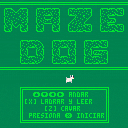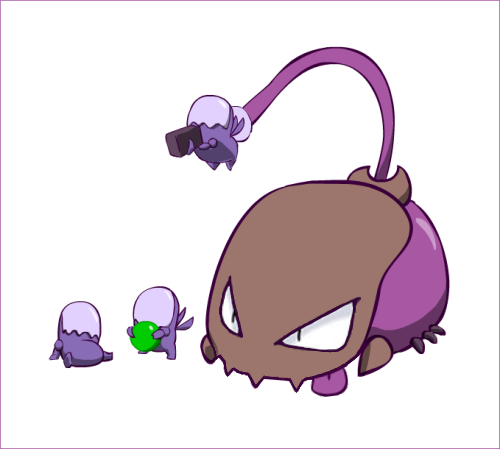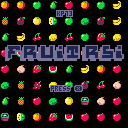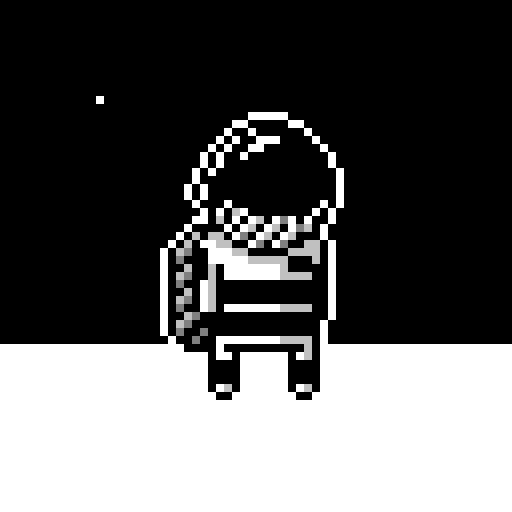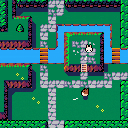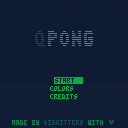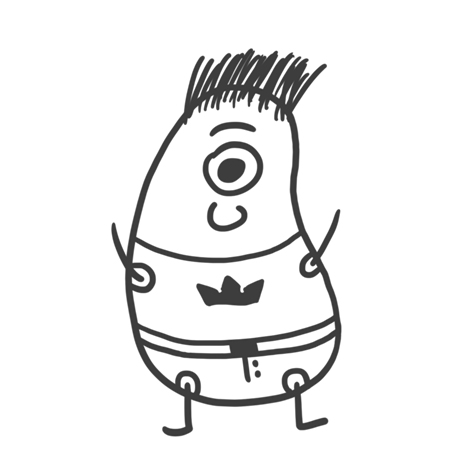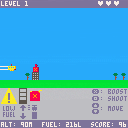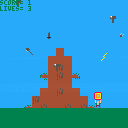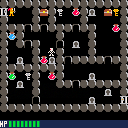City-8
Description:
An 8-bit City Building Simulator based off Sim City 2000 made in Pico-8.
Controls:
Arrow Keys: Move Cursor
Press C to pick menu options + place buildings
Press V to open/close the building menu
How to play:
In City-8 there are many factors to keeping your city healthy and happy:
Cash: Earned through a tax on the population
Population/Housing: The number of people is limited by the number of houses
Happiness: Keep employment with shops and factories and health high with hospitals/ traffic low with roads
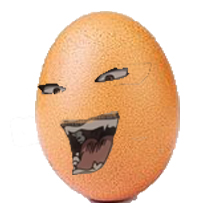
This is a demo on how to display the cards in a player's hand. Hope you find this useful!
--the amount of room for the cards to be in
hand_width = 96
--the size of the room in pixels
room_width = 128
--number of cards on screen
card_num = 0
--the width of the card in pixels
card_width = 12
--how many cards until they compress
card_fit_num = flr(hand_width/card_width)
function _update()
--update card_num
if btnp(❎) then
card_num += 1
end
if btnp(🅾️) and card_num > 0 then
card_num -= 1
end
--update hand_width
if btn(⬆️) then
hand_width += 1
end
if btn(⬇️) and hand_width > 12 then
hand_width -= 1
end
card_fit_num = flr(hand_width/card_width)
end
function _draw()
--draw stuff
cls(1)
print("card num:"..card_num,43,50,6)
print("x to add card",37,58)
print("c to retract card",29,64)
print("⬆️⬇️ to change hand size",15,70)
line(room_width/2-hand_width/2-2,98,room_width/2-hand_width/2-2,117)
line(room_width/2-hand_width/2+hand_width+1,98,room_width/2-hand_width/2+hand_width+1,117)
line(room_width/2-hand_width/2-2,98,room_width/2-hand_width/2+hand_width+1,98)
line(room_width/2-hand_width/2-2,117,room_width/2-hand_width/2+hand_width+1,117)
--where the magic happens
if card_num > card_fit_num then
for i=0,card_num-1 do
spr(1,(room_width/2-hand_width/2)+(hand_width-card_width)*(i/(card_num-1)),100,2,2)
end
else
for i=0,card_num-1 do
spr(1,(room_width/2-hand_width/2)+hand_width/2-(card_width*(card_num/2))+(i*card_width),100,2,2)
end
end
end |

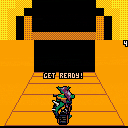
left/right to move (coarse movement like an old LCD game)
Just a simple thing I've been working on the last two days. All my projects get so ambitious and so muddled and so lost, so it was time to make something short. I'll be back with updates to extend the music, I got really into making the instruments work together and they deserve to be applied more!
patreon.com/zzzv


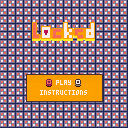
This is a simple implementation of a 2 player abstract strategy game.
The idea behind it was: a strategy game where you don't capture pieces.
The instructions and rules are in the cart (and hopefully aren't too confusing) but the general idea is to stop your opponent from being able to take a turn. This is done by locking all their pieces either outside the board or using your pieces. You can strike locked pieces to move them or free them.
Two players are needed (or you can play against yourself), I wanted to write a cpu player but realised that I don't really know what the strategy for this game is yet, so perhaps that is for the future. You can switch on the second controller from the pause menu or just both use the same controls.
I'm surprised I haven't noticed this before.
I'm not sure if this is a regression in 0.2.1b or if it got outright broken, but @zep, I swear you fixed it in the past. But in 0.2.1b pack() is always setting the table.n value to 0:

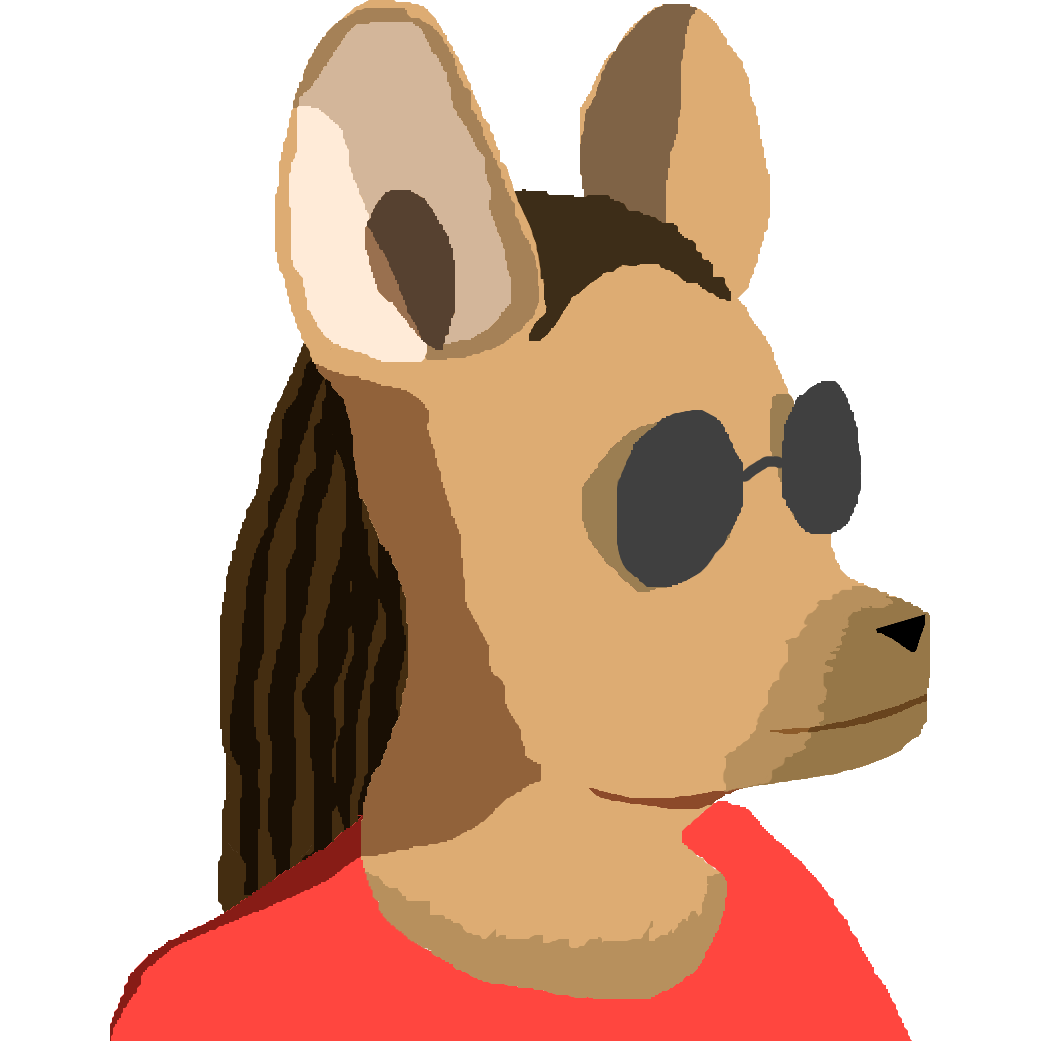
This cart is still in progress. I just wanted to upload it to show a few people.
So at the moment, tapping Z will increase your run speed ever so slightly, but it returns to normal after a moment.
Later, running faster will be easier for wolves to hear, and attract their attention to you.
X is used to show the path finding grid, but path finding isn't fully implemented yet, though the methodology is commented out in the wolf state system tab in the "RESUME" state. The grid is generated each time you enter a new room, and the wolves will really only use it to investigate sounds, or to find their way back to their regular patrol paths.
Today, I got the bunny to hop, I removed moving backwards (as the down button will be reserved for throwing rocks), and I modified some of the sprites, and commented out the RESUME state.
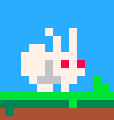
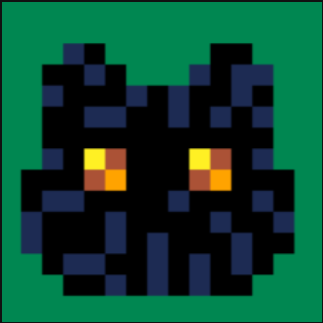
Today is Game Boy's 30th anniversary in Europe. To celebrate, I ported the first ever game I made, QPong to PICO-8 on GameShell which looks very similar to a Game Boy. This is the closest to making a GB game without doing it the hard way using C or Assembly!
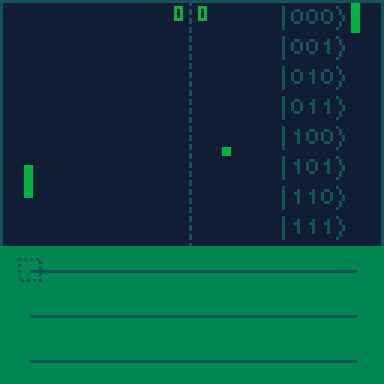
QPong is a quantum version of the classic Pong. In this game, you need to construct a quantum circuit to control the paddle position. Spooky quantum phenomena like superposition and wave function collapse show up in the game if you place H gates on the circuit.
Controls
-
W, A, S, D: move cursor
-
Z: Place/remove Hadamard gate
- X: Place/remove X gate
Links
Please read my blog post for details about the game and everything about quantum computers!

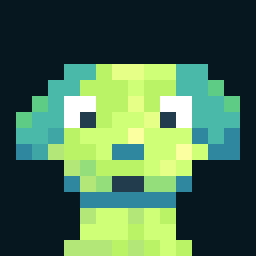

Hi all!
I'm Elia and this is my first post here.
I'm enjoying a lot PICO-8 but I've stumbled across a mystery.
To get to the point, I was reading the pico8zine#2 as a tutorial, and the first chapter makes u do a game of life program.
The example was not using the _update and _draw function, so I changed a bit my code to use it, and at first I thought something wasn't working with the code, and later discovered I was running at 15fps!
It was a bit weird since I was basically doing just the things the tutorial said, I then tried to switch to not using _draw but drawing with flip and a while(true) as the tutorial, and now all works fine!
I don't know if this is intended, but I used stat(1) to look at the cpu usage, and I had more than 17 with the tutorial version, when I though more than 1 lead you to 15 fps.
This is my version with the _draw and _update functions:

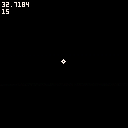
Just a simple dungeon game. I made this in a few days of my free time as my first dive into PICO-8. Run into skeletons to kill them, which costs 1 HP. Silver keys to open chests, gold to open the door to the next area. Try to collect all 26 treasures!
v1.1 - Fixes the bug with the door forward. Whoops!

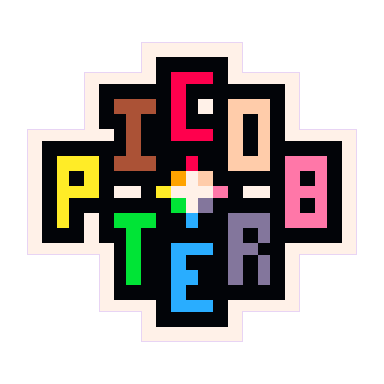












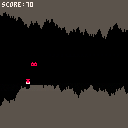
 0 comments
0 comments

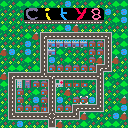

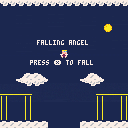


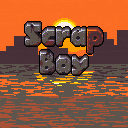

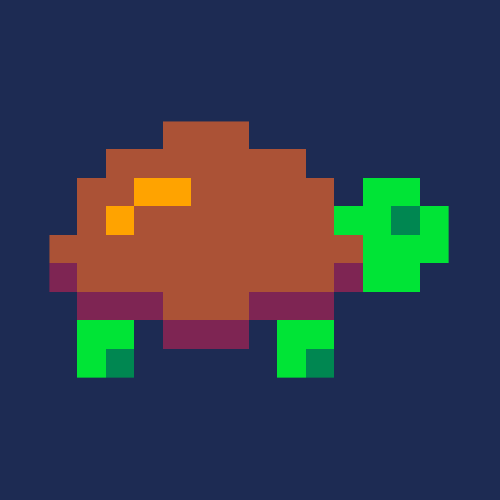


.png)
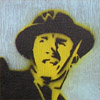
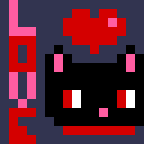



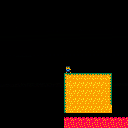

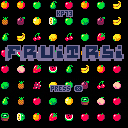
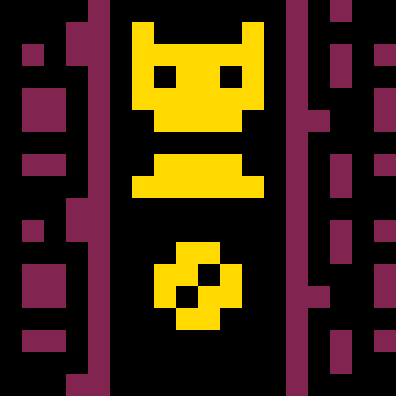
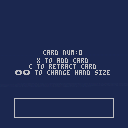
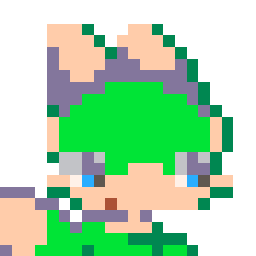
 ]
]

 18.00.47.png)
